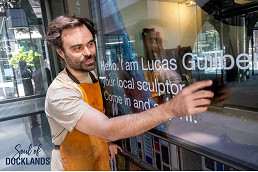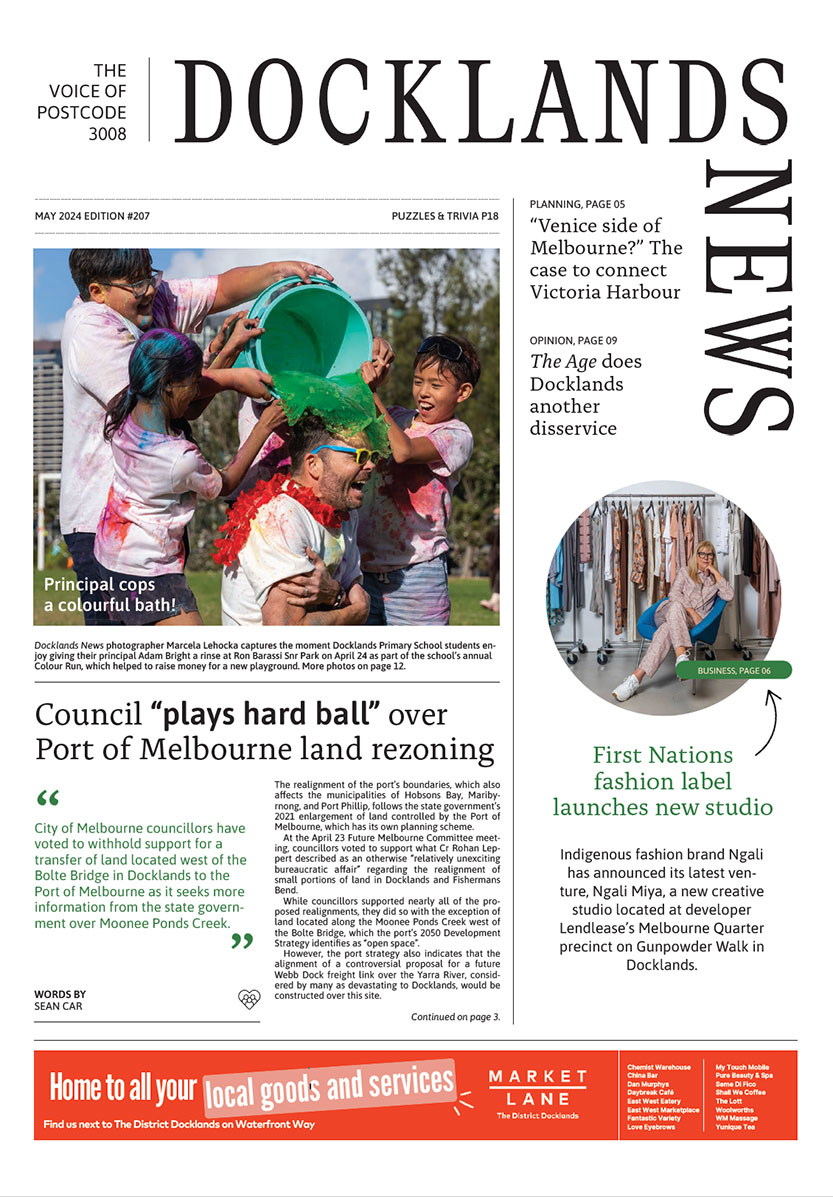What does the future hold for Docklands?
A new year, a new era for Docklands. A place that is vibrant and attractive for people to live and work. At least that’s what is hoped.
The City of Melbourne provided scope for optimism late last year when it announced it was advocating for the redevelopment of Central Pier, delivery of the shopfront activation program, pushing Greenline, and creating an events partnership program.
It came on the back of the council hosting a Docklands Summit which recognised “the urgent need for action and generate enthusiasm and outcomes for the regeneration of Docklands”.
However, while many small businesses are keeping busy, the new year has continued to see Victoria Harbour struggle with several shops either empty or with “for lease” signs displayed on front windows.
One New Quay restaurant owner was seen mopping the floor without a single customer inside during what should be a busy lunchtime service in January. As one café co-owner put it, “It’s nothing like pre-COVID”.
“The corporates are not coming back the way they should,” Peter Mastro, co-owner of Saluministi café in Bourke St, said.
“You can do as many events as you want, it’s great for the five minutes when they’re on, but after that, what do you do?”
“Don’t get me wrong, we’re not closing the doors, we’re still busy,” Mr Mastro said, but added, “The long-term solution is to get people back to work.”
In November last year, the council said it would create “immediate harbour beautifications” and activations on Victoria Harbour, neither of which have come to fruition at this stage.
Asked about these immediate projects, which are part of the council’s long list of priorities for the precinct, the council said the Docklands Summit “action and next steps” report “identified a number of priority projects for the precinct, subject to the allocation of funding and resources”.
“Council is currently considering a number of projects as part of its annual budget planning process and is advocating for additional funding and partnership opportunities with the Victorian Government and other key stakeholders,” it said.
It added, “Council is continuing to engage with the community and provide ongoing updates through the Docklands Neighbourhood Portal”.
According to Professor Andrew Butt of the RMIT University centre for urban research said their opportunities in Docklands that should be “utilised to try and maximum the draw of people”.
But he added the pandemic had demonstrated that “we need to have adaptable forms of new urban development”.
“We’ve got to face up to the fact that there’s different types of roles for cities and that means a better mix of housing forms and types to encourage a different mix of populations,” he said.
“The underlying issues are high rates of vacancy, investment driven property, and a lack of infrastructure to meet the needs of diverse community.”
“We’ve had a ferris wheel longer than we’ve had a school – there’s a problem with that.”
“The lesson from that should be planning for Docklands should start with focusing on things that make a community work and everything else will fall into place.”
But Cr Jamal Hakim argued differently, saying Docklands has “long been perceived as an isolated neighbourhood that lacks community”.
“I’ve always argued this is not true – Docklands is home to a growing community that is set to bloom,” he said last year. •

Council “plays hard ball” over Port of Melbourne land rezoning







 Download the Latest Edition
Download the Latest Edition
